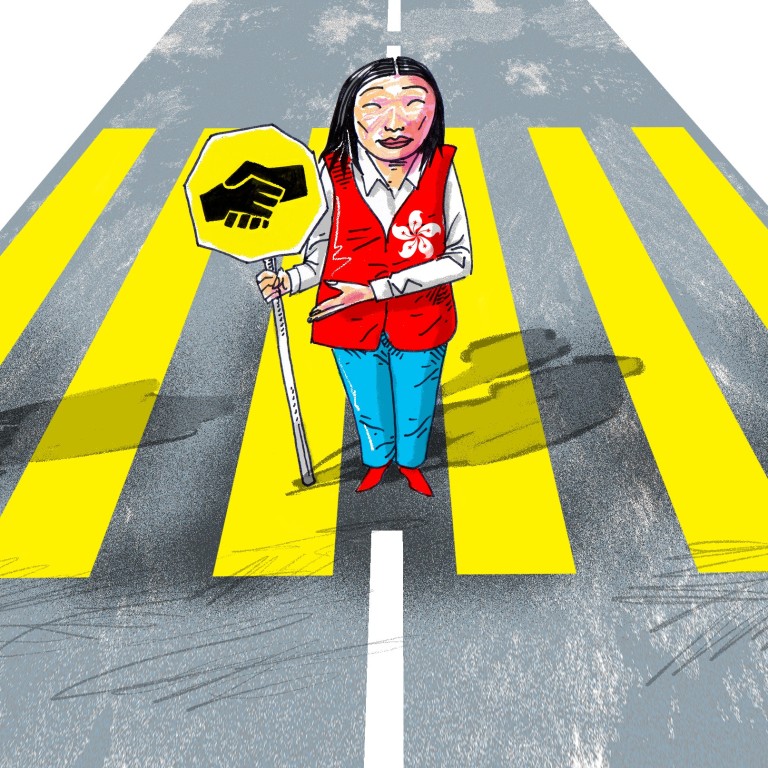
Will those in the political middle please step forward to bridge the great divide and save Hong Kong
- The political middle should accept Carrie Lam’s olive branch and open up space for reconciliation. Moderates who sympathise with the protest movement should remember that the ability to talk across the divide is a democratic virtue
Hong Kong’s opposition and establishment camps might not be able to bring themselves to do it, so someone else will have to. As an existential crisis engulfs the city, the political middle has a great responsibility to seize this moment and transform it into an opportunity.
The middle ground in politics is usually where the majority view lies. Those who are zealous accuse moderates of being dull, timid and lacking fervour and passion. They call the political middle names like “middle-of-the-roaders”, “fence-sitters”, “opportunists” and “whateverists”.
Moderation is a salve. It is a disposition, not an ideology. It helps us resist the temptation to persist with political conflict: when too much has been invested in resistance, it can be hard to stand down and talk to those across the divide. But talk we must as this is the way to solve problems, even those that seem intractable.
In a time of rage and resentment, political moderation would serve Hong Kong better, by making dialogue possible and creating a chance to move things along. Facts can be presented, and all sides can listen to different views and have their assumptions challenged. People can exchange views without insults and invectives.
For those who are uncomfortable with dialogue for fear of being seen by their peers as useless or traitorous, it is important to remember that civility, goodwill and being able to talk across the political divide to discover a consensus are essential democratic virtues.
It is only with a moderate disposition that we can debate and advocate in a principled fashion and treat people with different views with respect. Isn’t this what we want from our leaders, regardless of political affiliation?
China broke its promises. That’s why the protests are back
Listening requires the patience and empathy of ministers. Conversation requires listening first, resisting the urge to pontificate, and remaining open to where the public wishes to take a discussion. This is not the time to justify past actions or inaction, or to be combative. This might not yet be the time to start a political debate, which warrants special preparation if policies are to be advanced.
Moderates must stand their ground and make it clear they want these sessions to bring a new beginning, where Hongkongers can show each other and the world they have what it takes to pull the city back from the brink of dissolution.
Let the middle ground become the place to be. Hong Kong has shown the world how peacefully it can protest. Hong Kong has also shown how easily society can fall into disunity and disarray. Hong Kong must now show it can heal itself and recover.
Christine Loh, a former undersecretary for the environment, is an adjunct professor at Hong Kong University of Science and Technology

